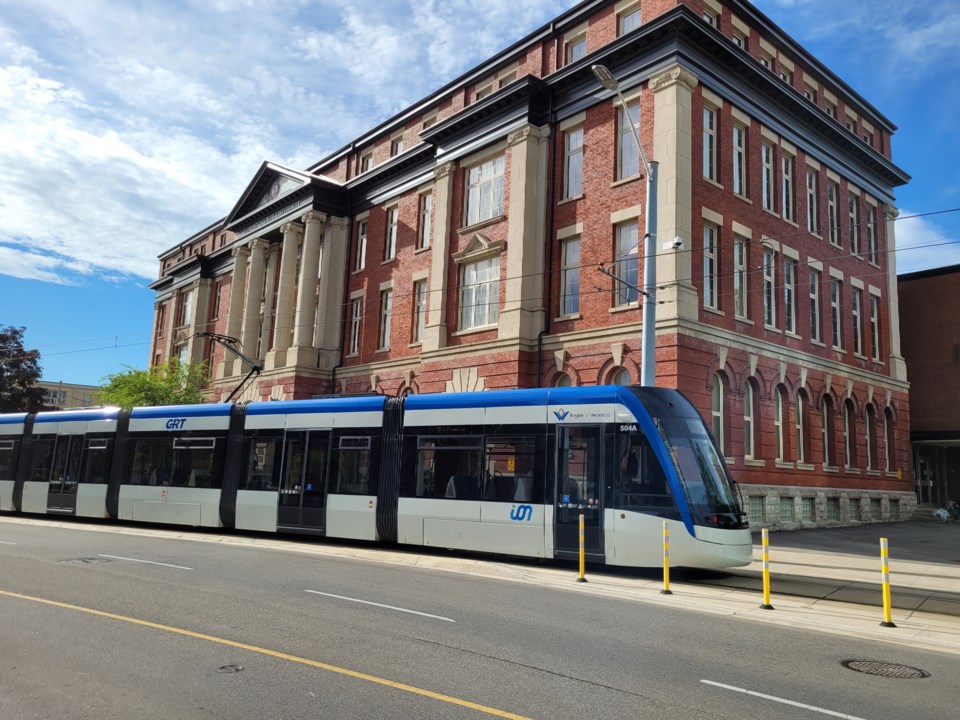The scope and price tag of the study needed to create a business case to bring Stage 2 of ION light-rail transit to Cambridge over the next decade is going up by over $1 million.
Regional staff is asking council to increase the contract with WSP Canada Group Ltd. to $4.7 million to complete its Transit Project Assessment Process (TPAP).
The study has to be completed in advance of drafting a business case outlined by Metrolinx to access federal and provincial funding for the project.
The change in scope is coming on the heels of a Region’s Official Plan (ROP) review that will identify minimum density targets for each major transit station along the Cambridge LRT route.
That review is expected to result in revised land use, employment, and population forecasts through 2051 and will support existing and planned transit service levels.
Amendments to the contract with WSP Canada to expand the scope of the project include additional cultural heritage evaluation reports, new heritage impact assessments, updated travel mode forecasting, and an impact assessment to 2041.
Other additions to the TPAP include the development of renderings and 3D visualizations of the proposed LRT system and coordination of rail design with proposed developments that are adjacent to the route.
The business case is expected to be completed by next spring, pending updates from the ROP review, and final travel model results that will revise LRT and transit ridership projections for the business case.
The business case will summarize the capital and lifecycle costs of Stage 2 of the ION in comparison to the “quantitative and qualitative benefits” of the project for residents.
The region says several measures have already been taken to protect the LRT corridor through Cambridge since council endorsed Stage 2 in April 2020.
Some of those measures include requests to developers to dedicate land for road widening and transit infrastructure, maintaining a wide median as part of King Street improvements to accommodate future LRT at the overlap from Highway 8 to Highway 401 in Kitchener, and designing the Beverly and Dundas roundabout to accommodate the ION crossing with minimal reconstruction.
Public engagement on the project will continue next spring with a presentation of the draft business case and visualizations of what the system will look like when it’s built.
Funding for the amended WSP Canada study is coming from the region's Rapid Transit Capital Program Reserve Fund and Transit Development Charge Reserve Fund.



